KEEPING YOU SAFE
CCTV and Body Cameras
All of our trains, and most of the stations we serve have CCTV systems, which means a safer environment for our customers and colleagues. Some of our colleagues also wear small body cameras or ‘Body Worn Videos’. These measures are for everyone’s safety and security, allowing us to capture incidents on film so that we can deal with them when they’re reported.
It's always a good idea to take a look at the safety information when you board one of our trains too. You can also help by keeping all your luggage and personal belongings with you at all times. Our onboard staff are trained to deal with a range of situations, so please speak to them or any station staff immediately if you spot anything unusual, any strange behaviour, or any unattended luggage.
If you are travelling with young children, please ensure they stay clear of opening and closing doors to avoid risk of injury.
Contacting the British Transport Police (BTP)
If you have witnessed or been the victim of a crime or antisocial behaviour, you can report it to the British Transport Police (BTP) via their online portal:
You can also contact the British Transport Police (BTP) at any time by phone on 0800 40 50 40 or even by text on 61016, it only takes a minute. In an emergency, always call 999.
We work very closely with the British Transport Police (BTP) across our rail network to help keep you safe, and make your journey comfortable and secure. That's why you'll see them at the stations we call at and travelling on our trains.
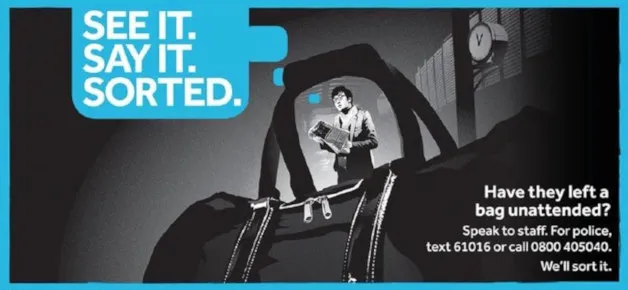
See it. Say it. Sorted.
We take anti-social behaviour and crime on our trains very seriously to ensure we provide our passengers with a safe journey and our staff with a safe working environment at all times. There's no excuse for abuse. Examples of anti-social behaviour includes:
- Drunken/disruptive/rowdy or threatening behaviour
- Using offensive language
- Using electronic equipment to play loud music or films, or talking excessively loud on a mobile phone
- Taking up seats with luggage on busy trains or putting up feet on seats
- Leaving trains in an untidy or dirty manner
In extreme circumstances we reserve the right to refuse travel if we believe someone is acting aggressively, or in an indecent or offensive manner, or if they are unsteady on their feet and are unable to stand on their own without support.
In an emergency
It's normally safer to stay where you are and wait for instructions. But, it's also important you know what to do.
- if you need to stop the train, pull the alarm, then find a member of staff
- once your train stops, leave by lowering yourself carefully through the doors; and avoid any rails that could be live
- leave any personal belongings behind
- When you've left the train, keep an eye out for hazards like loose rails, wires, bags and suitcases; find a safe place well away from the tracks, and wait for instructions
In an emergency, always call 999.
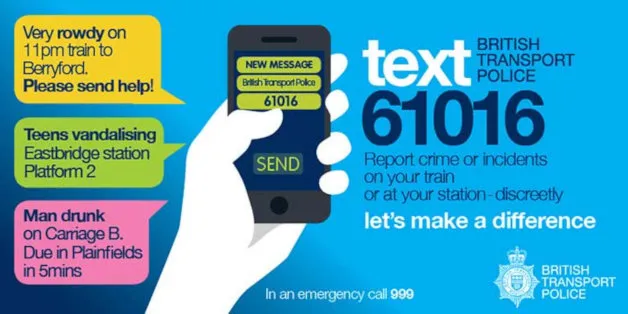
Hull Trains are proud to be White Ribbon accredited for our commitment to working towards ending violence against women and girls. You can find more information about White Ribbon here.
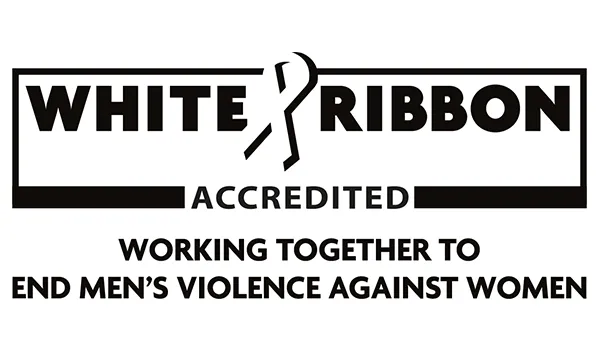
Additional Resources
- British Transport Police 'Be Aware' Campaign - find out more.
- Metropolitan Police 'Project Servator' - find out more.
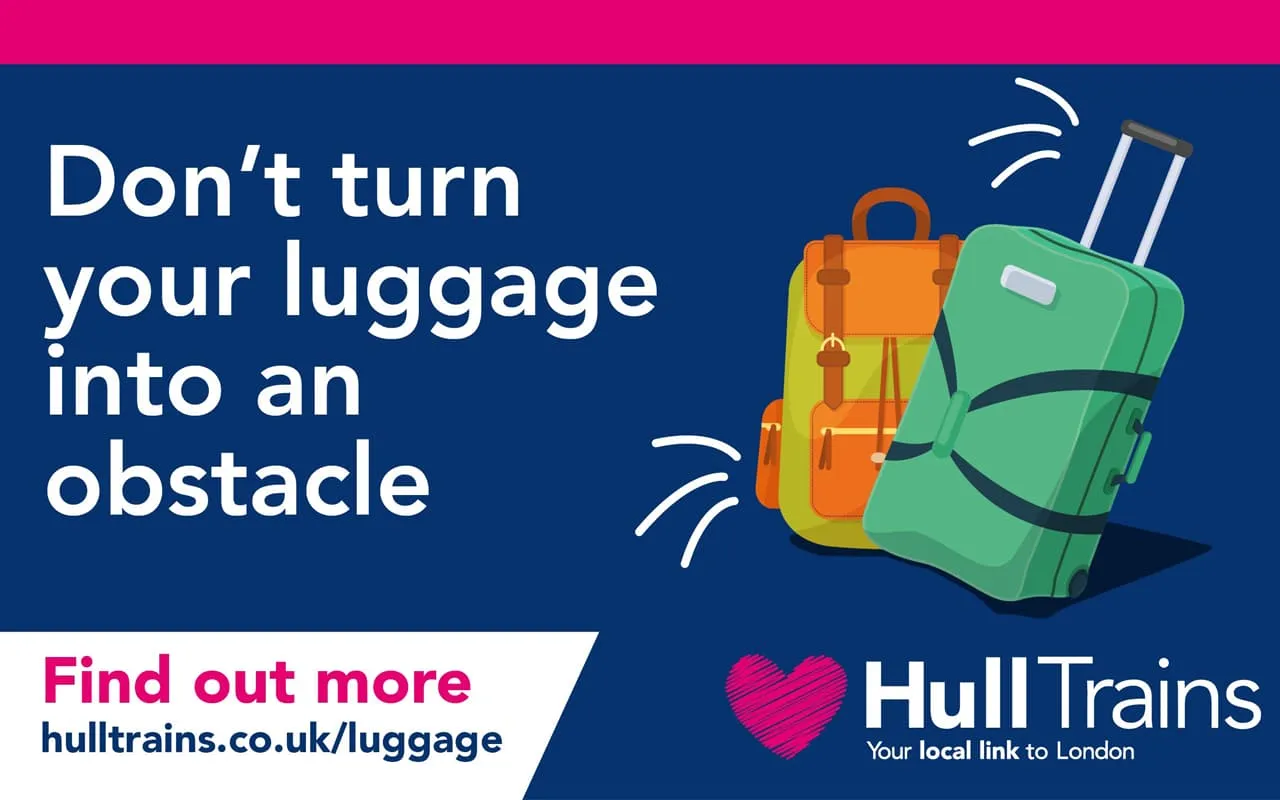
Travelling with Luggage
Remember to keep an eye on your luggage and be mindful of fellow customers on the platform when boarding and alighting the train.
Storage space on Hull Trains services can be limited when busy and limits do apply. Luggage should not block any doorways, aisles, reserved seats or wheelchair user spaces onboard. You can check our luggage limits here.
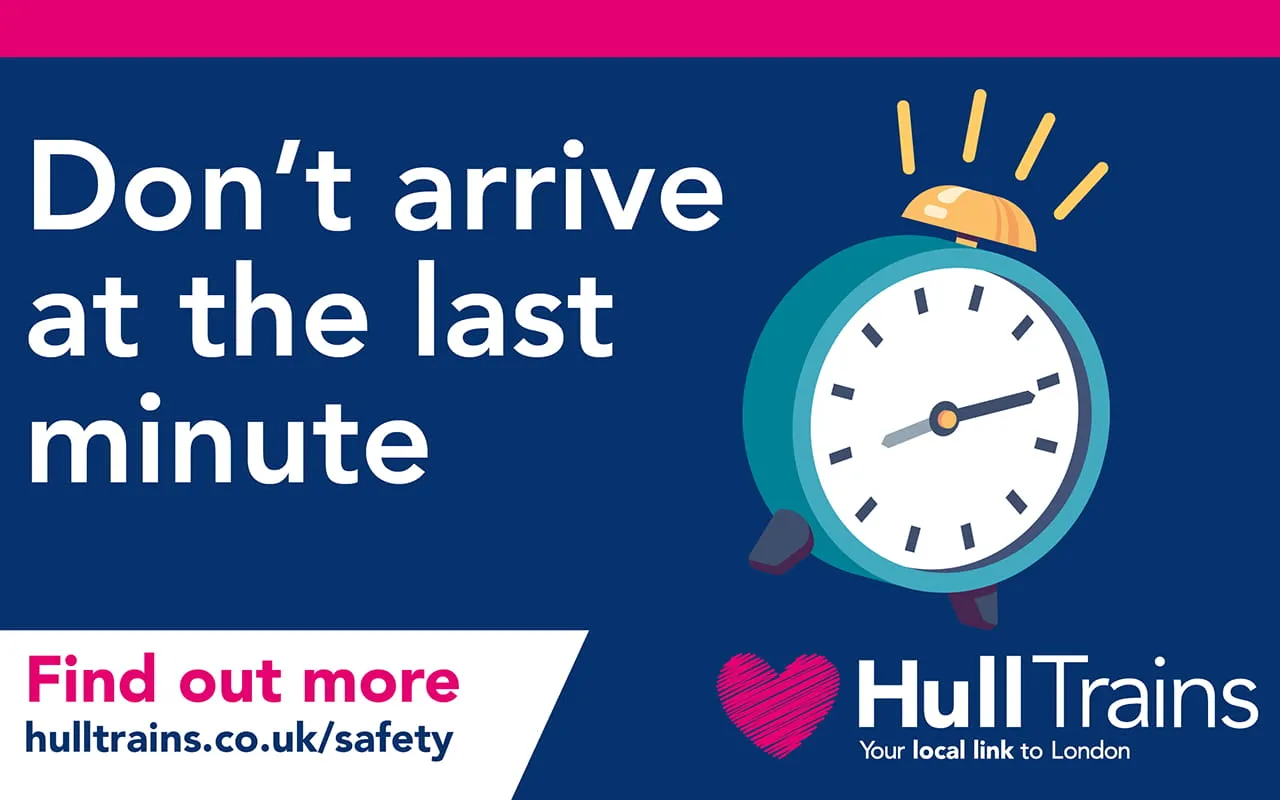
Don't Arrive at the Last Minute
Arrive early for your departure and allow plenty of time to reach your platform, particularly if you have luggage.
A little extra time can go a long way in ensuring a safe trip and reducing stress, trips, falls and injuries.
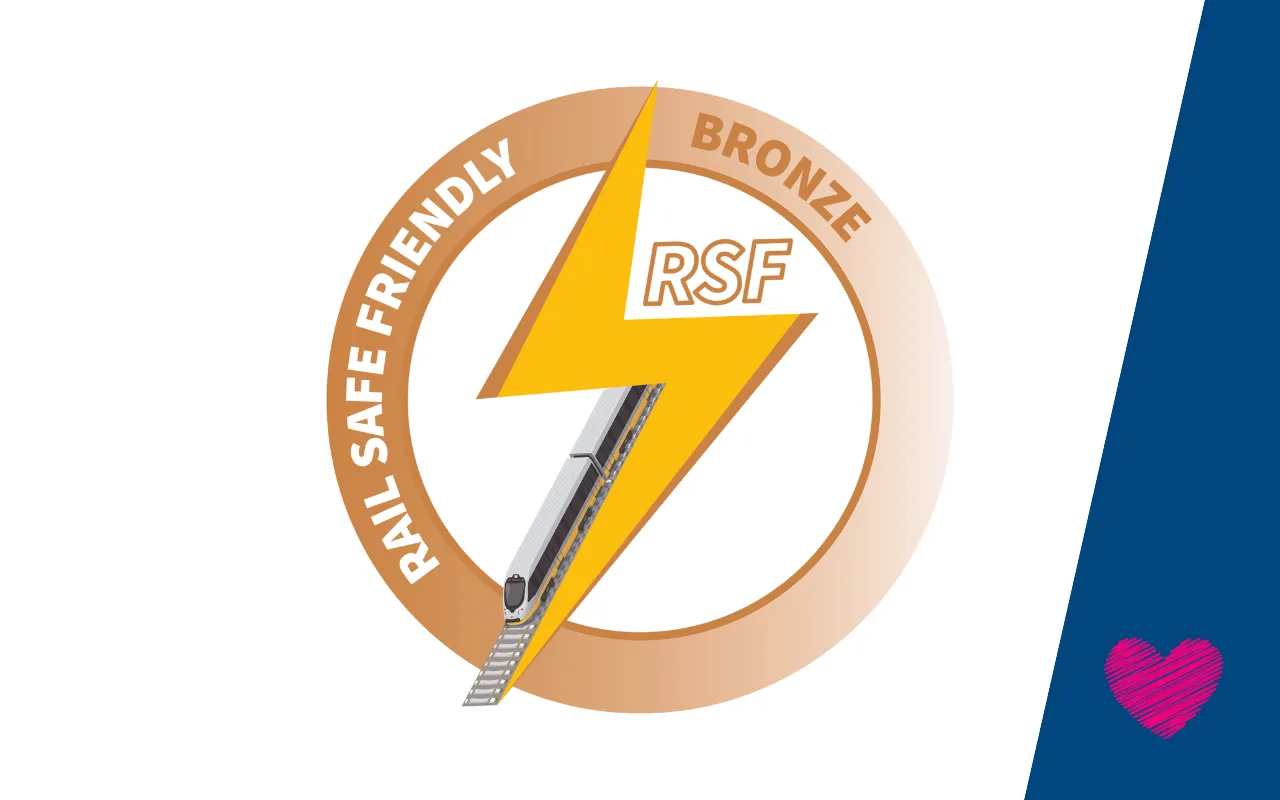
Keeping Your Young Ones Safe
We are working in partnership with Rail Safe Friendly to champion a safer railway by educating young people on the dangers of the railway. Rail Safe Friendly works with schools across our network to raise awareness of the dangers through online education via the Switched On website and other educational content.
To date we have reached over 20,000 people through this partnership alongside our sister operator, Lumo. If you are a school and would like to become Rail Safe Friendly certified, click here.


 No Booking Fees
No Booking Fees






